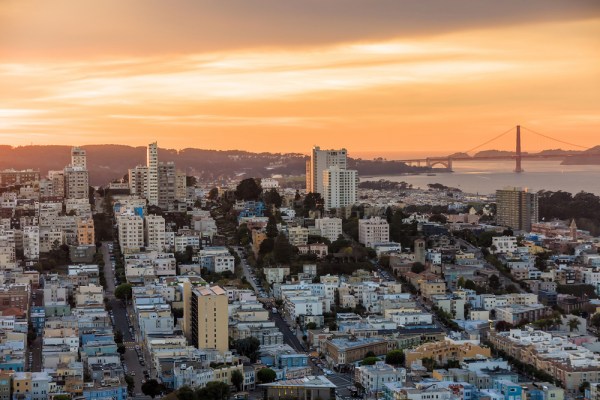Airbnb, which is constantly accused of worsening San Francisco’s housing crunch, has released a report specifying how many of its listings might violate city law. It also said it will take more steps to prevent and delete illegal listings.
In new data, the company said that about 1,149, or 12 percent, of all 9,448 active listings in San Francisco were managed by hosts who have more than one entire home (as opposed to a room or shared space) posted on Airbnb. When only active listings of entire homes are counted, that number jumps to 20 percent. That means they break Airbnb’s own rules, which only allow people to list their primary residence, as well as a city law passed in 2014 that was specifically created to legalize and regulate short-term rental platforms like Airbnb.
This is a major problem in San Francisco because taking homes off the market in order to list them as short-term rentals makes it even harder to find affordable housing. As an in-depth report by the San Francisco Chronicle last year put it, “in a city wracked by a housing crisis, where a typical year sees just 2,000 new units added, a few hundred units off the market makes a significant dent.”
So what does Airbnb plan to do? It already removes listings by commercial operators, but the startup, which has received $2.4 billion in funding so far, admitted that “we have more work to do.” In addition to deleting properties by hosts with more than one entire home listed on Airbnb, the company said it will take a closer look at all listings in San Francisco to make sure none were placed by commercial operators.
“Going forward, we will examine our broader community—including hosts with only one listing—and continue to develop more tools so we can help hosts share homes in which they live, not homes that would otherwise be on the long-term rental market,” it said.
The company also defended itself, stating that “Airbnb listings represent a fraction of the housing stock in San Francisco,” which 31,686 units, according to an estimate by the United States Census Bureau.
These are the most precise numbers Airbnb has released so far about how many listings in San Francisco might be illegal. Last year, the company vowed to provide anonymized data about hosts and guests to city policymakers as part of its “Airbnb Community Compact.”
